detail profile jacques mattler

Info Pribadi
Peran Yang Di Mainkan Jacques Mattler
 Celestin works as an organist at...
Celestin works as an organist at...Mademoiselle Nitouche 1954
Celestin works as an organist at a girl's school. By day, Celestin is the meek and mild target of the girls' incessant practical jokes. By night, however, he is the celebrated composer of popular operas -- and the romantic vis-à-vis of a celebrated stage star. When schoolgirl Denise stumbles onto Celestin's secret, she threatens to tell all -- but only if Celestin refuses to escort her to the opening night of his latest opera. As a result, Denise falls in love with a handsome young soldier, while Celestin is accidentally shipped off to an army camp. A series of silly coincidences brings happiness to all concerned by fade-out time.
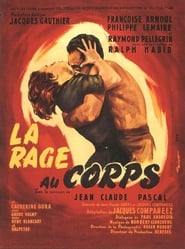 A dam is under construction in...
A dam is under construction in...Tempest in the Flesh 1954
A dam is under construction in the Pyrénées mountains. All the workers only have eyes for pretty, sensual Clara, the canteen waitress. And what she exchanges with many of them is more than just looks, this is for sure. Nevertheless, despite her frivolity, Clara falls truly in love with Tonio Borelli, the site foreman. The latter takes her to Paris and they marry. But Clara soon realizes that the call of the flesh still consumes her...
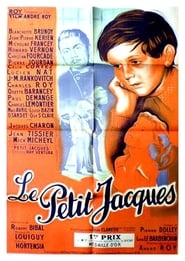 Nol Rambert is overwhelmed by fate...
Nol Rambert is overwhelmed by fate...Le Petit Jacques 1953
Noël Rambert is overwhelmed by fate. Marthe, his wife, has left him. His son, little Jacques, sickly and touching, has psychic gifts. Life is not a happy one. A crime is committed. Poor Rambert is unjustly suspected. A good-looking man convinces him to confess his guilt. In doing so, he secures his child's future. Resigned to everything, the sad Rambert is ready for the scaffold. The little medium brings the truth to light and Mme Mortal denounces her husband, Daniel Mortal, the man behind the despicable bargain, as the murderer. Happiness returns with a bang, as the repentant Marthe Rambert continues to watch over little Jacques during the ordeal.
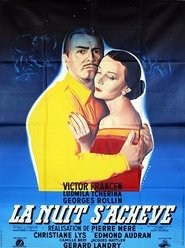 JeanLouis Danielles fianc a nurse becomes...
JeanLouis Danielles fianc a nurse becomes...La nuit s'achève 1950
Jean-Louis, Danielle's fiancé, a nurse, becomes blind following an explosion in the mine where he works. Coming from Lyon, Doctor Coudray, whose natural son Gilbert - who loves Danielle - dies while helping his father threatened by the person responsible for Jean-Louis' accident, will work to restore his sight.
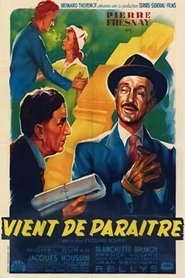 Satire of publishing circles featuring a...
Satire of publishing circles featuring a...Just Out 1949
Satire of publishing circles, featuring a ferocious boss, Moscat, a successful but handsome author, Maréchal, another successful but bitter author, Bourgine, a writer plagued with ambition, Brégaillon and the hero, Marc Fournier Zola Prize winner. Naive, the latter quickly becomes formidable, especially since his wife's infidelities have provided him with the material for a new novel.
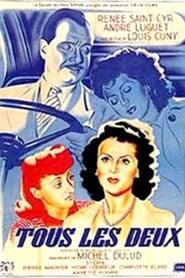 Jean and Claude he a car...
Jean and Claude he a car...Tous les deux 1949
Jean and Claude - he a car builder, she a model - loved each other, then separated because of Jean's despotic affections. Claude has retired with her child and a friend to a farm she can't manage. Wearily, the friend alerts Jean who, in the twinkling of an eye, erases the difficulties. Claude also learns that the child has been recognized and that his father has always looked after him. The two reconcile and embark on a journey for better or for worse.
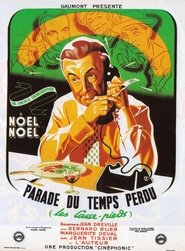 A series of vignettes in which...
A series of vignettes in which...The Spice of Life 1948
A series of vignettes, in which Noel-Noel appears as the moderator, lecturer, commentator and leading actor, that examine the bores and pests of everyday life much like Pete Smith and Robert Benchley had done for years in American short subjects. Among those are the Practical Joker who will do anything for a laugh; the Party Entertainer who never stops singing; the Talkative Neigbor who forgets the time; the noisy neighbors who dance the tango all night; and women drivers, people who telephone at meal time, the friend you never saw before and amatuer medical experts. Much use of trick photography, montages, puppets and animation along with some adult Gallic wit and gentle satire.
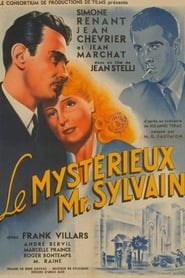 In an aeronaval base a marine...
In an aeronaval base a marine...Le Mystérieux Monsieur Sylvain 1947
In an aero-naval base, a marine engineer who was about to deliver the name of a redoubtable spy is murdered. Shortly afterwards three different men appear on the crime scene, each of them claiming to be Monsieur Sylvain, the expected sleuth. But which of the three investigators is actually Sylvain? And what about this delightful young lady who arouses one of the police inspectors? Couldn't she be the murderous spy?
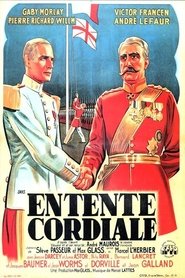 The film depicts events between the...
The film depicts events between the...Cordial Agreement 1939
The film depicts events between the Fashoda crisis in 1898 and the 1904 signing of the Entente Cordiale creating an alliance between Britain and France and ending their historic rivalry. It was based on the book King Edward VII and His Times by André Maurois. It was made with an eye to its propaganda value, following the Munich Agreement of September 1938 and in anticipation of the outbreak of a Second World War which would test the bonds between Britain and France in a conflict with Nazi Germany.
 Dora Nelson a famous actress leaves...
Dora Nelson a famous actress leaves...Dora Nelson 1935
Dora Nelson, a famous actress, leaves both her husband Philippe de Moreuil and the role she was playing in a movie directed by Nivert, to follow her lover Santini in Italy. But she soon realizes that Santini deceives her with a girl named Elsa. In vexation she decides to return to her husband and to her career. Unfortunately for her, Suzanne Verdier, a little working girl, has in the meantime replaced her not only in the film she had left unfinished but in her husband's heart as well. Dora eventually understands she must step aside.
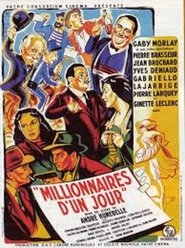 A typographer makes a mistake by...
A typographer makes a mistake by...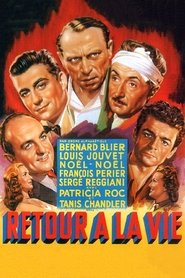 In France in 1946 the difficult return...
In France in 1946 the difficult return...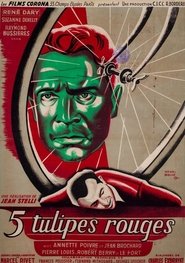 During the Tour de France five...
During the Tour de France five...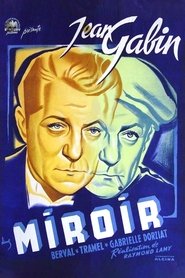 Portrait of a twofaced man By...
Portrait of a twofaced man By... A little bank employee wins a...
A little bank employee wins a...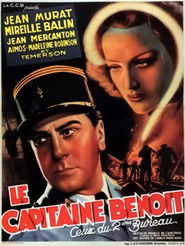 An officer saves the life of...
An officer saves the life of...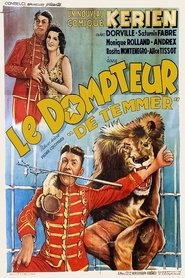 A very shy person inherits a...
A very shy person inherits a...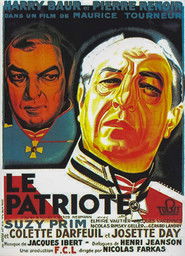 The reign of Tsar Paul I...
The reign of Tsar Paul I...